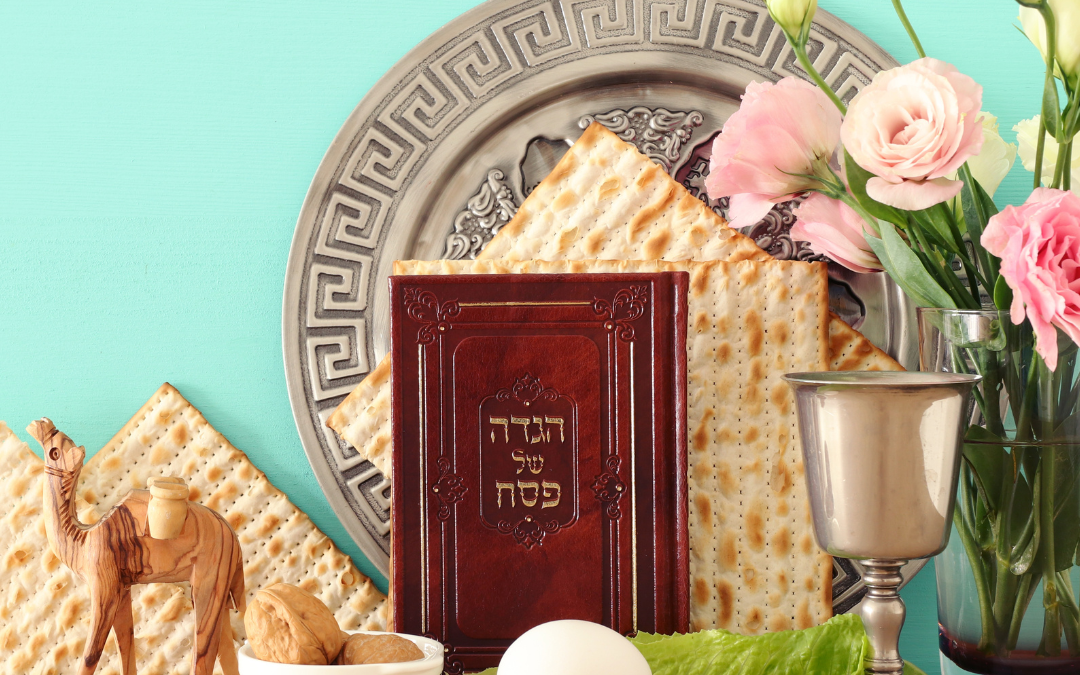Why Do We Celebrate Passover? What Are the Customs of Passover?
Passover, or Pesach, will begin just before sundown on Monday, April 22, 2024, extending until the sun sets on Tuesday, April 30. The most celebrated Jewish holiday in the world, Passover has a number of well-known traditions, many of which involve food. What is the history behind Passover? What are some of the traditions and why are they practiced?
What Does Passover Celebrate?
The Passover holiday pays homage to the Exodus, the Biblical account of the Israelites’ escape from bondage in Egypt. One of the three “pilgrimage” festivals, it originally called for all able-bodied Israelites to travel to the temple in Jerusalem, as set forth in the Torah. Though such a journey is no longer compulsory, many observant Jews living in or near Jerusalem will travel to the Western Wall to honor Passover.
As set forth in the Torah, the Passover led directly to the expulsion of the Israelites from Egypt. The book of Exodus tells of the plagues that God wrought on Pharaoh and the Egyptians, with the 10th plague being the death of every firstborn child. God instructed Moses to have the Israelites put a mark of lamb’s blood above their doors, so that the Angel of Death would recognize them and “pass over” their houses, leaving their firstborn child unharmed. After the 10th plague caused the deaths of all non-Jewish firstborns, Pharaoh ordered the Israelites to immediately leave the country.
What Are the Customs Traditionally Associated with Passover?
Here are some of the ways that people around the world commemorate Passover:
- A ritual house-cleaning—This is spring cleaning with a purpose. Though it’s ostensibly to ensure that you have no leavened breads or grains in the house, it’s taken on a broader meaning, signifying that you’re starting with a clean slate, taking the necessary steps to ensure a good Passover.
- Avoiding unleavened breads and grains—For the entirety of Passover, Jews abstain from all bread products that have yeast or any other agent that causes the bread to rise. This signifies the immediacy of the departure from Egypt, which happened so quickly that the Israelites could not wait until their bread began to rise.
- Hosting a seder—From the Hebrew for “order” or “sequence,” the Passover seder is a ritual Jewish feast commonly celebrated at the commencement of the Passover holiday, typically on the eve of Nissan 15 in the Hebrew calendar. The seder involves a symbolic retelling of the story of the escape of the Israelites from Egypt, with different foods representing a key part of the tale. Participants receive a plate with a number of small, partitioned portions of food. Common components of a seder meal include a roasted shank bone (symbolic of sacrifice), bitter herbs (to acknowledge the difficulties of slavery), and eggs/greens to represent spring.
- Recounting the Passover story—At some point during Passover, virtually every Jewish family will read aloud the Passover story. It may come directly from the Torah or it may come from the Haggadah, a Jewish text that details the order of the Passover seder. According to Jewish tradition, parents are commanded by God to relate the story of the Exodus to their children. Reading the Haggadah is considered a fulfillment of that obligation. With small children, it’s common to read a child’s version of the story.
- The afikomen—It can be challenging at times to keep children engaged during a seder. One tradition has the host taking a stack of three pieces of matzah and breaking the middle piece into two uneven sizes. The smaller piece is returned to the stack, but the larger piece is wrapped in cloth and subsequently hidden in another part of the house. The children are then sent to try to locate this larger piece, known as the afikomen (from the Hebrew for “revel”). The child who finds it often receives a prize.
- Setting out a glass of wine for Elijah—As a part of the seder, hosts commonly put an extra wine glass on the table for the Prophet Elijah. When the seder comes to a close, the host pours wine into the Prophet’s glass, opens the front door (so that Elijah’s spirit may enter the home), and recites passages from the Book of Psalms.
Gutterman’s and Gutterman Warheit—Compassionate and Comprehensive Funeral Services for the Jewish Community
At Gutterman’s and Gutterman Warheit, with funeral chapels in New York and Florida, we have provided funeral and burial services to the Jewish community for more than 125 years. We are familiar with the unique customs within each Jewish tradition and can answer your questions and offer guidance on any matter, from the order of service at the memorial to the choice of a casket or monument, preparations for sitting Shiva or the creation of a Yahrzeit calendar. We can work directly with the Chevra Kadisha, ensuring that the body has been prepared according to Jewish law before interment.
To learn how we can be of assistance, contact us by email or call us at one of the numbers listed below.
Gutterman’s & Gutterman Warheit — Where Relationships Matter
Family Owned and Operated Since 1892
Rockville Centre: (516)764-9400 | Woodbury: (516)921-5757 | Brooklyn: (718)284-1500
Boca Raton, FL: (561)997-9900 | (800)992-9262

